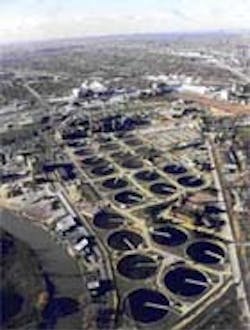A compromise has been reached after 31 years of litigation and squabbling over control of the Detroit region's water and sewer system, the Detroit Free Press has reported.
U.S. District Judge John Feikens received a proposed agreement from Detroit and suburban water officials the morning of Dec. 18.
Under the agreement, Detroit will sell a troubled sewer interceptor serving Macomb and Oakland counties to the suburbs for $200 million to $300 million.
The agreement also calls for Detroit to repay $27 million it charged the water and sewer system for a $131-million post-9/11 emergency radio system.
Feikens said he had long told the stakeholders their problems could be resolved only through cooperation, not litigation or legislation, the paper reported.
"I'm heartened and pleased that all of you have proven me right," Feikens said. "I know this was a long road, but it was worth it."
But the key point of the agreement, said Detroit attorney Thomas Lewand, Feikens' special master over the case, is the creation of a five-member directors council designed to resolve disagreements before they escalate into the type of protracted litigation that has plagued the system in the past.
Lewand called it a "framework for peace in this region for the next 30 years," the paper reported.
The council would include an official from the governments of Detroit and Macomb, Oakland and Wayne counties, along with a fifth member chosen by those four.
The U.S. Environmental Protection Agency sued the city in 1977 to stop pollution of the Detroit River. Since then, the newspaper said, Feikens has been “de facto czar of the Detroit system.”
Officials from the suburbs have accused the city of gouging them on water rates over the years, while officials in Detroit have accused suburban officials of trying to hijack the city’s water and sewer system.
The agreement gives the suburbs a "seat at the table," Oakland County Water Resources Commissioner John McCulloch said.
In the past, the only official voice the suburbs had was their minority representation on the Detroit water board, but even those members were chosen by Detroit’s mayor.
"I don't think it's necessarily the end-all, but I think it's a step in the right direction in terms of trying to work cooperatively in the region," McCulloch said.
Source: Detroit Free Press
